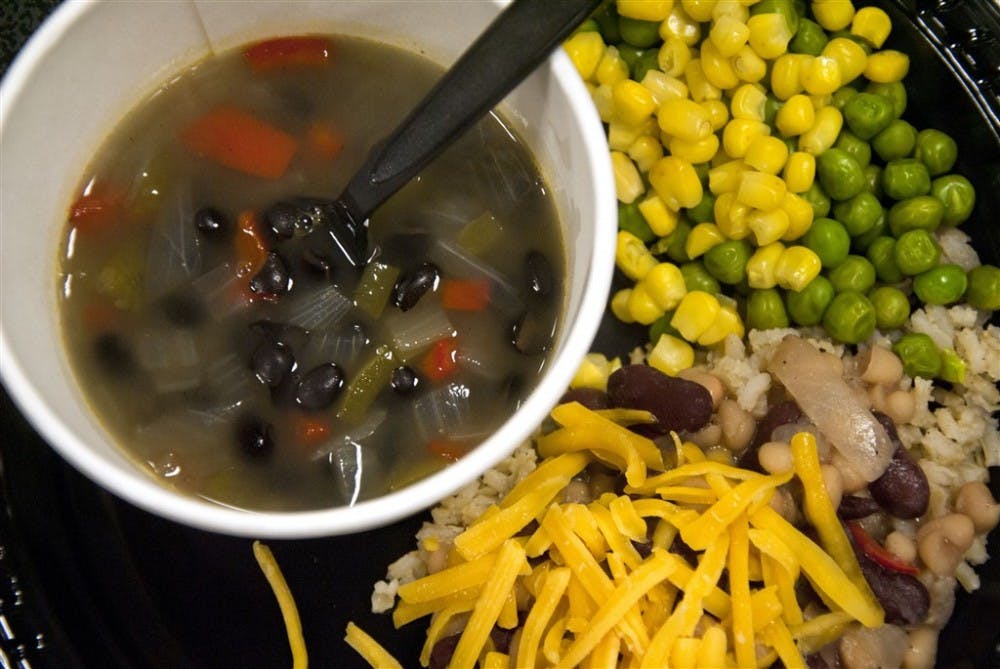"Elon" is the Hebrew word for "tree" or "oak tree," a piece of trivia that students, faculty and staff quickly learn after arriving on campus. But on Nov. 11 members of the community focused on a different phrase in the traditional language of Judaism.
"Tikkun olam" is a Hebrew saying that means "repairing the world." The tenets of Judaism promote service through social justice, encouraging people to gain awareness of issues in the community and across the world.
Elon Hillel, the campus Jewish life organization, hosted a global hunger Shabbat to discuss hunger issues and understanding a call to activism.
"By having a global hunger Shabbat dinner this Friday, we are making people realize that hunger exists across all communities, including Elon," said sophomore Mason Sklut, public relations chair. "Once people see how serious of an issue global hunger is, then hopefully they will feel the urge to participate in service work to help those suffering from hunger."
The dinner featured a simple meal of corn, peas, rice and beans, donated by ARAMARK. Students and faculty in attendance focused on the importance of being Jewish with the ability to improve the quality of life for those in need by participating in a roundtable discussion.
The conversation revolved around the connection between Judaism and social justice. The struggles of the Jewish people during its enslavement in Egypt and the abuses of the Holocaust offer them a responsibility to work toward solutions for injustices, according to senior Michael Gross, vice president of Hillel.
"Healing the world is a big Jewish goal," said sophomore Caitlin Byrne, co-chair of social action. "Tonight we have country studies. We're doing Colombia and Haiti, trying to figure out what we can do as a small Jewish community."
Despite concern for the hungry in other countries, conversation also focused on solving starvation in the United States. Students said they had witnessed homelessness and hunger.
Students agreed that malnutrition resulting from poverty is an issue plaguing American society. Freshman Sophia Koh compared the poor's reliance on cheap, fast food like McDonald's, lacking in vitamins and nutrients, to the Jews' dependence on matzah during their exodus from Egypt.
Understanding the link between Judaism and social justice is what brings Hillel together, and strengthening their community enables them to initiate change, members said.
"The underlying meaning of these events is to bring the Jewish community at Elon together," Gross said. "Sometimes we don't get to see each other during the week, so Shabbat is a chance to come together and remember what we're here to do."
Hillel members said they believe they can discover practical solutions to hunger crises both in the United States and abroad. Being conscious of the gift they have to eat a hot meal every day is a first step toward solving the problem.
"I feel like the impact of global hunger deserves more attention than it gets," Sklut said. "As an Elon student, with access to food 24/7, I will do my best to make more of an effort to show moderation with food"


